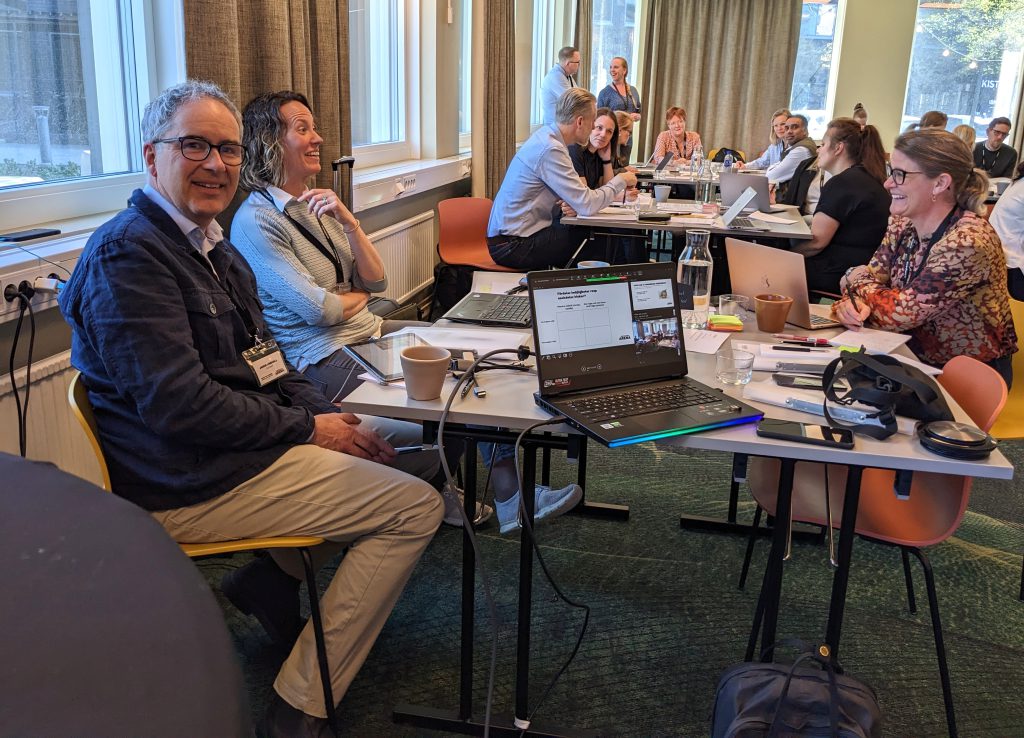Since the turn of the year, Jakob Lindvall has been one of the team members who drive the development of Demand Acceleration. In the methodology, he sees great potential for creating change and development on a large scale with the help of public business. He is not the only one! Around the world, the realization is beginning to grow that public procurement can become an effective tool for driving green and digital transformation.
After an intense spring, interest in the Demand Acceleration methodology has created a wealth of new opportunities. During his first six months, Jakob Lindvall has had to experience an intense development curve, and shares here some of his impressions from the journey so far.
Tell us a little bit about your background in the innovation system?
- I have a very broad background with experience from both large, international companies and a number of startups that I have been involved in and launched. For a few years I was CEO of Norrköping Science Park where we developed both a business incubator, science park and cluster operations. It was then that I opened my eyes to open innovation and realized what a socially changing force it becomes when all actors pull in the same direction. Since then I have worked partly with innovation and business development, partly as some form of consultative developer in the Swedish innovation system, above all with incubators and science parks in Sweden and abroad.
How did you get involved in the Demand Acceleration development?
- I have followed the development of Compare and Digital Well Arena from a distance and have been very impressed by their progressive attitude and genuine desire to drive social change. When the question came from them if I wanted to be involved in developing Demand Acceleration, I didn't need any thinking time at all - it was a hit!

Jakob Lindvall on site in Kista with colleagues Carolin Maule and Marie-Louise Eriksson in connection with "Train the trainer". An investment in spreading knowledge about Demand Acceleration to new innovation environments. It has also resulted in Jakob and Marie-Louise creating the very first manual for managing procurements with the support of the methodology.
What potential do you see in the methodology?
- Finally, there is a tool for the public sector to, based on demand (Demand), run a form of open innovation process within the framework of the law on public procurement. But real social change does not become an innovation until it spreads. The beauty of the methodology is that it is equally focused on supporting the suppliers, so that they can scale up sustainable solutions and sell to more people in a larger market (Acceleration).
Are there any challenges that need to be solved to get there?
- If we are to reach the global goals in 2030, we have a huge need to come up with new sustainable solutions that are also widely implemented. It is not enough for one municipality to solve its needs in a sustainable way, the solution must be spread to several. Thus, a focus on scalability in the solutions is important, as well as that public actors must dare to do business even with smaller companies that have the new solutions.
What reactions do you and the team get around the Demand Acceleration methodology from the outside world?
- We had the opportunity to present the methodology at a UN conference in Geneva last spring and it was very uplifting. The whole world sees that we are about to miss the global goals for 2030 and that we must take action together. Innovation is an important part of this, and from that perspective, there are mainly two efforts that were pointed out during the conference – creating stronger links between research and industry and using public procurement as a tool to promote innovation. With that prologue, of course, it was right in the middle of Demand Acceleration!
Are there any specific highlights from the trip so far that you'd like to share?
- Policy and theories in all their glory, but it is in the practical work that benefit is really created. So it's super fun to be part of when users in the business together with the supplier discuss concrete problems and creative solutions. Then it will be very concrete and value-creating!

